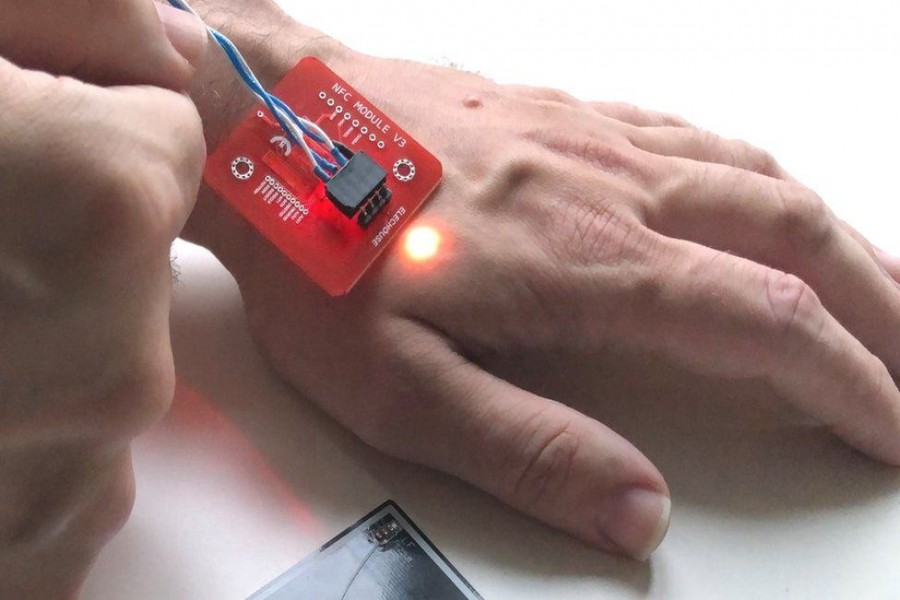Can you imagine going to a shop or a restaurant and simply placing your hand in front of the card reader and the payment is completed within a split second?
Although it might seem quite unrealistic and straight out of a science fiction novel at first, thanks to British-Polish firm - Walletmor, you can now do that, through an implantable payment chip that has been brought to the market for sale by the company.
Microchips planted in human bodies are a recent phenomenon and one was planted for the first time in 1998. The technology has been utilised commercially only in the past decade and along with many different fields, payment chips were developed for commercial purposes as well.
Walletmore's chip is quite light and is only a bit bigger than a grain of rice and is composed of a microchip and an antenna, which is surrounded by biopolymer. The Chief Executive Officer of the Company, Wojtek Paprota claims that it is entirely safe and also has regulatory approval.
In an interview with BBC, Paprota described the overall utility of the microchip by saying,
"The implant can be used to pay for a drink on the beach in Rio, a coffee in New York, a haircut in Paris - or at your local grocery store. It can be used wherever contactless payments are accepted. "
The microchip does not need a battery to function nor does it need any other power source which makes it quite attractive to the users. As per the firm, they have sold more than 500 microchips so far.
Walletmor uses the Near Field Communication system which broadly is the contactless payment system of smartphones. This system is actually pretty similar to the radio-frequency identification (RFID) technology which is used in contactless credit and debit cards.
The idea of having a chip implanted inside the human body is slowly gaining popular support as people are becoming more aware of the positive effects as well as the drawbacks of the procedure.
A 2021 survey conducted in the European Union and the United Kingdom came up with the result that at least 51 per cent of people will consider having a chip implanted in their body.
Although implantable chips are a recent phenomenon and have only gained popularity recently, it will be interesting to see how this affects financial transactions in the long run.


